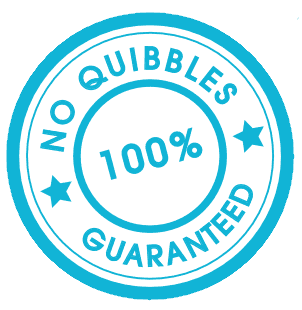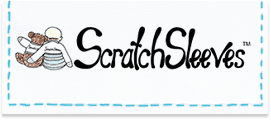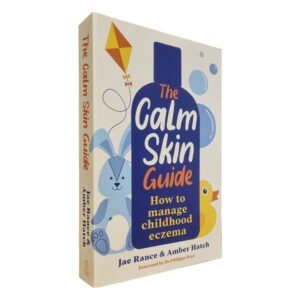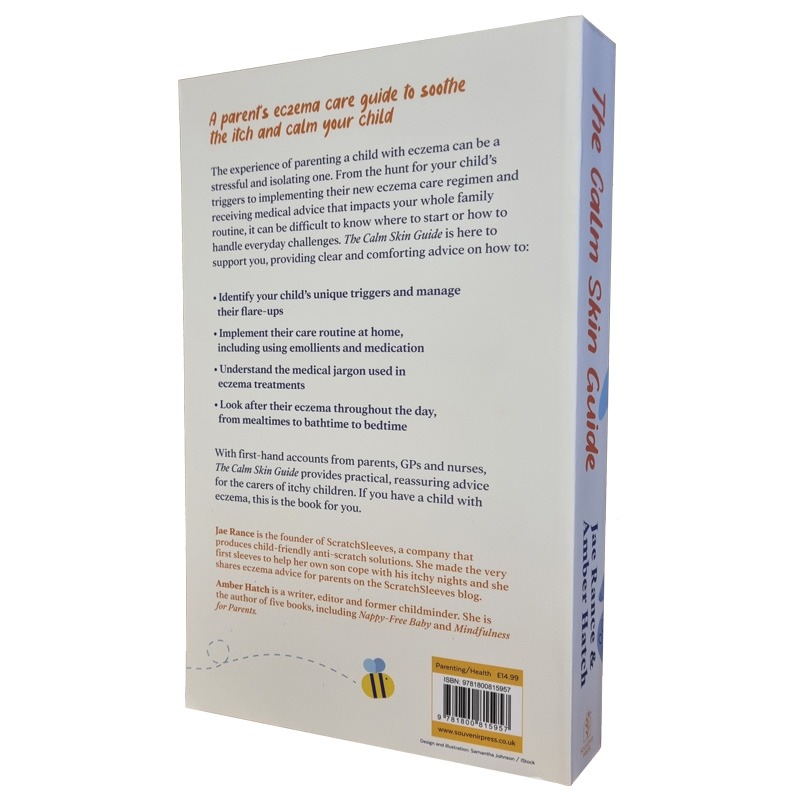10 vitamins and minerals for eczema management (and where to find them)



Vitamins and trace minerals are micronutrients that are essential for the body’s growth and development. They play critical roles in many processes within and around the body. Ensuring that children who suffer from eczema to consume enough of the vitamins and minerals should help with eczema management.
In this article the ScratchSleeves team helps you to understand the vitamins and trace minerals that are important to include in your eczema child’s diet as well as the best, child-friendly foods to source them from.
1. Vitamin B6
Vitamin B6 has multiple functions within the body, one of which is helping the liver detoxify chemicals. It can also help to weaken the toxic effects of chemicals such as salicylates, benzoic acids, monosodium glutamate (MSG) and food preservatives, all of which can contribute to the eczema itch. As well as this vitamin B6 has anti-inflammatory properties. Ensuring your child is consuming enough vitamin B6 daily will help your child with the management of their eczema as the liver will be able to process itch-inducing chemicals at a faster rate, in turn reducing the child’s need to scratch. You can read more about liver function and eczema here.
As well as this the anti-inflammatory properties of vitamin B6 will reduce the severity of flare-ups on the skin. Children under the age of 5 years old should be consuming at least 0.3-0.5 mg of vitamin B6 a day to stay healthy. Much higher levels may be needed to combat eczema. Foods containing high levels of vitamin B6 include salmon, sweet potato, cooked lentils, chicken or turkey and bananas. These foods typically contain around 0.5mg of B6 per 100g.
2. Vitamin B7
Vitamin B7, also known as biotin, is used in the process of metabolizing fatty acids; it also helps to protect cells from damage and water loss, protecting the skin from inflammation. This will lead to your child being able to manage their eczema symptoms with more ease as vitamin B7 helps to retain water and moisture within the body meaning reducing the severity of dry skin. Also, the anti-inflammatory properties of vitamin B7 can help to reduce the severity of eczema flare-ups. The recommended daily intake for an under 5 to stay healthy child is 10-25mcg a day. Eczema kids will benefit from higher intakes – around 50mcg. Foods containing high levels of vitamin B7 include eggs, salmon, almonds, sweet potatoes, onions, whole grains, tomatoes, sardines and broccoli. One egg contains around 10mcg biotin, sweet potatoes contain around 20mcg per 100g.
3. Vitamin C
Children with eczema have an increased occurrence of fat build-up in the liver. Vitamin C has been proven to promote liver fat decomposition. As well as this vitamin C has antihistamine properties which can help to relieve symptoms of eczema. The recommended daily intake of vitamin C for a child under the age of 5 is 15-20 mg but for eczema sufferers higher levels, 25-100mg, may be helpful. Foods containing high levels of vitamin C include cherries, strawberries, kiwi, persimmons, oranges, broccoli, tomatoes, cabbage and green peppers (typically 10-30mg/100g). Papaya is a great source with 60mg per 100g. Try our yummy vitamin rich smoothie recipe.
4. Vitamin D
The primary function of vitamin D when it comes to eczema management is the regulation of the immune system by dampening inflammatory immune responses. Vitamin D also helps to promote a stronger skin barrier. Recent studies are not conclusive but have suggested that Vitamin D supplementation could be helpful when eczema is associated with food and airborne allergies1. Vitamin D can be made within the body when the skin is exposed to sunlight and is also found in food. Salmon, eggs and fortified breakfast cereals are great sources. Everyone over 1 year old should be consuming around 10mcg of vitamin D per day.
5. Vitamin K
Vitamin K’s function is to reduce inflammation as well as redness and swelling. This will help to reduce the severity of the flare-us. The daily recommended intake of vitamin K for children under the age of 5 is 30mg. Foods containing high levels of vitamin K include leafy green vegetables, liver and eggs.

6. Calcium
Calcium is stored on the outermost layer of the skin and helps to maintain the optimum level of moisturising lipids within the body, preventing dry skin. It is also thought to help protect the body from dust mites and infections by supporting the skin’s natural acidity. Ensuring eczema children are consuming enough calcium reduces the risk of their skin becoming dry and scratches getting infected. In most cases this isn’t a problem as children typically consume plenty of dairy products.
However, if your little one is allergic to milk, you will need to ensure that there is plenty of calcium in their diet once they are no longer drinking formula ‘milk’. The recommended daily intake of calcium for children under the age of 5 is 350-450 mg, children with eczema are likely to benefit from higher levels. Non-dairy foods containing high levels of calcium include tofu, fortified soy milk or rice milk, salmon, green soybeans, oatmeal, sweet potatoes, green beans, and celery.
7. Zinc
Zinc plays a central role in skin integrity by both supporting the skin barrier and modulating the immune system. Studies indicate that low zinc levels are commonly associated with eczema suggesting that improving zinc level may reduce eczema symptoms2. Although research into this relationship is still ongoing, it seems sensible to ensure your eczema child is eating plenty of zinc rich foods, especially if they are on a dairy-free diet. Children should be consuming 2-5mg of zinc daily. A common, easy to spot sign of zinc deficiency is white flecks in the fingernails. Foods containing high levels of zinc include red meat (4-10mg/100g), pumpkin seeds, oats (1.8mg/100g), beans (e.g chickpeas or black beans, 0.5-1.5mg/100g), dairy and cashews.
8. Magnesium
Magnesium is an essential nutrient for hundreds of processes within the body. It helps to decrease stress and anxiety, which can aggravate eczema; it is important in the production of lipids, which protect the skin from irritants; and it suppresses the production of histamines, another eczema aggravator. Ensuring your little one has enough magnesium in their diet can help to reduce the chances of eczema flare-ups as well as speeding up the healing. The daily recommended intake of magnesium for children is 65-110 mg. Foods containing high levels of magnesium include leafy green vegetables like spinach (87g/100g), whole grains (wholegrain bread around 75g/100g) and bananas (27g/100g).
9. Taurine
Taurine plays an essential role in metabolism and digestion, as it helps the liver to create bile salts which help break down fatty acids in the intestines. Good levels of taurine healthy support liver function. It is interesting to note that research has found that infantile eczema sufferers are more likely to have a fatty liver than infants with clear skin3. You can read more about the importance of liver function in eczema here. Taurine also has anti-inflammatory properties which will reduce the severity of eczema flare-ups. A child under the age of 5 should be consuming 500-3000 mg of taurine a day. Foods containing high levels of taurine include cold-water fish, chicken and red meat.
10. Molybdenum
The function of molybdenum is to break down sulphates within the liver. It helps the liver to process carbon, nitrogen and sulphates and to metabolise drugs and toxins. If your child is suffering from eczema this part could be to do with a molybdenum deficiency within the diet. One of the main symptoms of molybdenum deficiency is eczema. A child under the age of 5 diets should contain 17-22mg a day. Foods containing high levels of molybdenum include lentils, dried peas, soybeans, chickpeas, oats, carrots and celery.
Vitamin supplements
Ideally, your child will be getting all the vitamins and nutrients that they need from their regular diet. But in the real world, it can be hard to get food on the table every day that your child will deign to eat, and that’s before worrying about its nutritional content. In the UK, the NHS recommends children between the ages of 6 months to 5 years take supplements containing vitamins A, C and D. There is increasing evidence that taking a daily vitamin D supplement, especially in winter can improve the severity of eczema.
Child-friendly vitamin tablets or jelly sweets are widely available in supermarkets and drugstores up and down the country. However, it is recommended to speak to a professional if you require advice on which vitamins are going to help improve your child’s eczema as well as the dosage of each vitamin.
Our references
- Schlichte, M. J., Vandersall, A., & Katta, R. (2016). Diet and eczema: A review of dietary supplements for the treatment of atopic dermatitis. Dermatology Practical & Conceptual. https://www.ncbi.nlm.nih.gov/pmc/articles/PMC5006549/
- Gray, N., Dhana, A., Stein, D., & Khumalo, N. (2019). Zinc and atopic dermatitis: A systematic review and meta-analysis. Journal of the European Academy of Dermatology and Venereology. https://pubmed.ncbi.nlm.nih.gov/30801794/
- Kimata, H. (2006). Increased incidence of fatty liver in non-obese Japanese children under 1 year of age with or without atopic dermatitis. Public Health. https://pubmed.ncbi.nlm.nih.gov/16337981/
As well as sharing our experience of bringing up an eczema child (and favourite allergy-friendly recipes), we also manufacture and sell our unique stay-on scratch mitts and PJs for itchy babies, toddlers and children. We now stock sizes from 0-adult years in a range of colours and designs. Visit our main website for more information.
The Calm Skin Guide
Love our blog? It's also available in book format with:
- First hand accounts from parents & medical professionals
- Easy navigation
- Comprehensive index
- Additional material
Signed copies available at no extra cost

Written by:
Reviewed by:
Interesting article? Don't keep it to yourself...
Read next...
You may also find helpful...
Quick buy


Multi Buy Discount

Spend between £30 - £60 and save 5%
Spend between £60 - £120 and save 10%
Spend over £120 and save 15%
Discount automatically applied at checkout
No Quibbles Guarantee

ScratchSleeves abide by a no quibbles guarantee.
Free UK Postage

Free packing and postage on all UK orders. For overseas orders to Europe postage is from £3.50, to USA is £6.50 and to the rest of the world, from £3.75.






